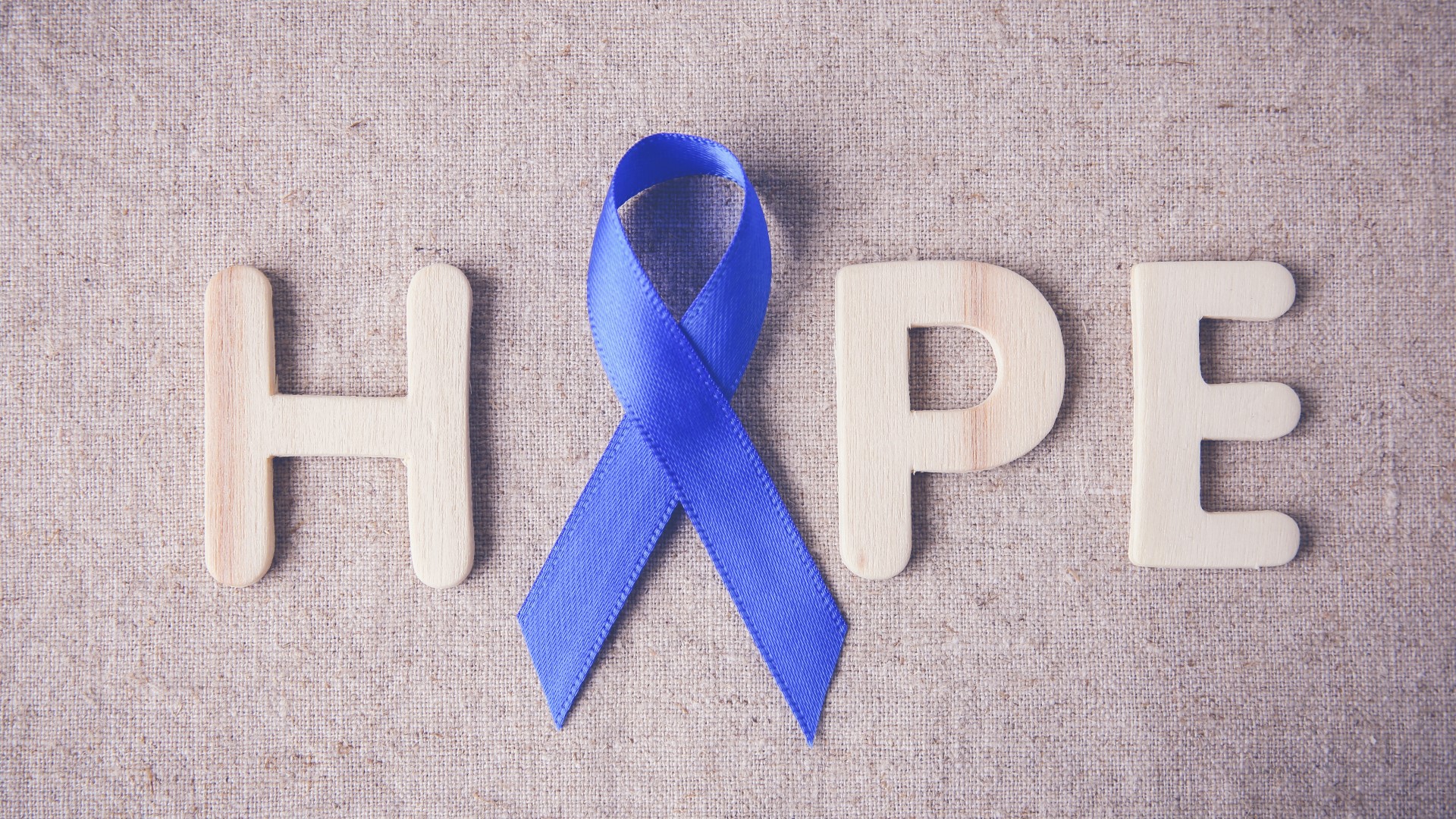OROVILLE, Calif. — John Tobias is fighting for his life, but he's not doing it alone. He relies on loved ones, like his sister, for support.
"I got to do everything I can to get through this," Tobias said. "My circle is very strong and very powerful. So, no matter what happens, I know I had some of the best people around me and that's real heart."
Tobias is at Oroville Hospital for treatment in Butte County. He has stage 4 colon cancer.
According to the American Cancer Society, stage 4 colon cancers have spread from the colon to distant organs and tissues. In Tobias' case, it spread to his liver. Even though colon cancer most often spreads to the liver, it can also spread to other places, like the lungs and brain.
"There's no use in beating yourself up and going, why did I get cancer, why did I get this," Tobias said. "I think I'm going to beat this. I'm going to do what I need to do because I got a little bit more in my tank."
When it comes to treating stage 4 colon cancer, most people get chemo or targeted therapies. For advanced cancers, radiation therapy can also be used to help prevent or relieve symptoms.
"I'm going to do two more chemos and that would bring it up to seven," Tobias explained. "Then, they will do a screening to tell me if the cancer has spread or what it's doing. You look forward to it, but you don't look forward to it because you don't know what's going to happen."
According to the American Cancer Society, colon cancer disproportionately affects the Black community. African Americans are about 20% more likely to get colon cancer and about 40% more likely to die from it than most other groups.
"Colorectal cancer is the second deadliest cancer in the country," said Dr. Durado Brooks, vice president of prevention and early detection at the American Cancer Society. "This disease is ravaging the Black community, and it is as important as ever that everyone has access to and is receiving the recommended screenings. Even during the coronavirus pandemic, necessary screening tests remain available to prevent the disease or find it at an early, more treatable stage."
The American Cancer Society says African Americans are disproportionately burdened by cancer in general. That's because they often experience greater obstacles to cancer prevention, detection, treatment and survival.
GET MORE RACE & CULTURE FROM ABC10:
►Explore the Race & Culture home page
►Watch Race & Culture videos on YouTube
►Subscribe to the Race and Culture newsletter
Some of the barriers to health equity are lack of access to information, care, screenings, and other socioecomonic factors. That includes lower paying jobs and lack of health insurance, lack of access to healthy and affordable foods, low-quality education and housing, and unsafe environments.
"Black patients have suffered from systemic racism and there has been redlining in America," said Dr. Miquell Miller, colorectal surgeon at UC Davis Health. "And, in these communities where patients have lower socioeconomic status, where they're from poorer backgrounds, they do worse with colon cancer. It's very much associated."
Tobias is sharing his story with ABC10's Race and Culture team to help raise awareness about colon cancer for all. He says it's all about helping others. Tobias explains that he saw the red flags in the past, but didn't go to the doctor immediately.
"The bottom line was I was just scared," Tobias said. "Remember to take care of yourself. We got a lot of stuff going on each day, like family, kids and work. But we just need to learn to put that behind us when we're not feeling good because that might be the first sign."
UC Davis Health says colon cancer is on the rise in people under 50. This led the U.S. Preventative Services Task Force to change its recommendations in May 2021 for colon cancer screenings to begin at 45. Before that, it was recommended that colon cancer screenings begin at 50.
"The incidence is increasing in younger patients," Miller said. "Many of us remember Chadwick Boseman, Black Panther. He died at 43 from colon cancer, so it's very common in the Black community."
Health experts say the most effective way to reduce the risk of colon cancer is to get screened routinely, starting at 45. Screening can often prevent colon cancer by finding and removing growths called polyps in the colon and rectum, before they have a chance to become cancer. Screening can also find colon cancer early, when it is still small, hasn't spread, and is likely to be easier to treat.
"Do not put it off," Miller said. "It could save your life and prolong your life."
Now, Tobais is using the power of hope to conquer fear.
He adds that he's thankful for the support from family, friends and the community overall. That includes a fundraiser being started to help him continue on his journey. With more than $5,000 raised so far, he's been able to make ends meet. That includes medical expenses, paying rent, caring for his dog Sadie and more. But the fight is not over yet.
"You got to believe because believing is at least giving yourself hope and you got to have hope," Tobias said. "And, for all the people who've come to see me in the hospital, I appreciate you. That's real."
We want to hear from you!
The Race and Culture team's mission is to serve our diverse communities through authentic representation, community engagement and equitable reporting. Accomplishing our goals of inclusive reporting requires hearing from you. Is there a person or place that you want us to highlight? Email us at raceandculture@abc10.com or fill out the form below.

